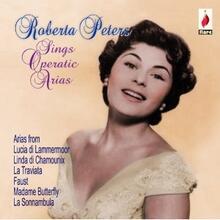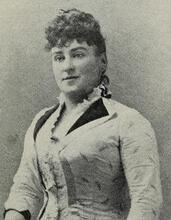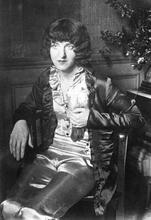Zsófia Balla
Zsófia Balla was born in Cluj, Romania (Kolozsvár), to Hungarian parents. Interestingly, Zsófia was not brought up practicing her parents’ religion, probably because of the political system of Romania. Though she received an atheist education, her mother taught her the laws and traditions of Judaism. While today she occasionally visits a synagogue, her reasons are mainly cultural. She considers herself a Hungarian writer with a Jewish heritage, who is tied to Judaism through her family’s suffering. Despite the hardship Balla experienced in Romania, where she was expelled from the village of Dej for organizing a music education class and because she belonged to a particular dissident intellectual circle, she was not active politically.
Family and Upbringing
Zsófia Balla, a Hungarian poet of Jewish origin, was born in Cluj, Romania (Kolozsvár), to Hungarian parents. Her father, Károly Balla, was a writer and journalist, and her mother Berta (née Taub) a professor of German literature. Her maternal grandparents were A member of the hasidic movement, founded in the first half of the 18th century by Israel ben Eliezer Ba'al Shem Tov.Hasidim from Máramaros, her grandfather serving as the choir master and melammed (traditional teacher) of the village of Alsóróna (Rona de Jos). Her parents were among the few survivors of the two families, who lost at least one hundred members in Auschwitz. The poet’s mother survived Auschwitz, while her father returned with painful memories from Ebensee (a subcamp of the Mauthausen concentration camp). Zsófia divorced her first husband, by whom she had a child who died. In 1997 she married the poet Csaba Bathori.
Literary Career
Balla studied music in Cluj, receiving her diploma from the Academy of Music in 1972. Her first poems were published in 1965 in the magazine Igaz Szó (True Word), and in 1968 her first book of poetry appeared. In 1975 she became a member of the Romanian Writers Association. Between 1972 and 1985 she was the music editor of the Hungarian section of the radio station in Cluj. In 1985, due to an official order, the station was abruptly closed, together with every other regional station in the rural areas. Between 1985 and 1990 Balla earned a living as a reporter for a national daily newspaper named Elôre (Onward). Between 1990 and 1994 she was the literary editor of two family-oriented weekly magazines.
Despite the hardship Balla experienced in Romania, where she was expelled from the village of Dej for organizing a music education class and because she belonged to a particular dissident intellectual circle, she was not active politically. Romania was the country where for seven years, between 1983 and 1989, she could not publish her work, and she was not allowed to leave the country between 1980 and 1990. However, she surprisingly received the Poetry Prize of the Romanian Writers Association in 1984 and again in 1991 after the ban on her work was lifted.
In 1990 Balla was invited to join the Hungarian Writers Association, and since 1992 she has been a member of the editorial board of Jelenkor, one of the most influential literary magazines in Hungary. She moved to Hungary in 1993 and has lived there ever since. In 1997, she became one of the founders of the Society of Hungarian Authors, and in 2005 she became co-editor of the World Literature Series at Scholar Publishing. From 2005 to 2011, she served as host at The Poets Theater at the Studio-K theater in Budapest. Since 2013, she has been a full member of the Széchenyi Literary and Art Academy, and since 2016 she has been a full member of the Digital Academy of Literature of the Petőfi Literary Museum. In 2017, she served as co-host, with Csaba Báthoriy, of the Approaching Poetry literary series at Studio-K theater.
In Hungary Balla is considered one of the greatest women poets. Her lyricism is mixed with grotesque playfulness along with fragmented, ironic, prose-like sequences. The subjects in her latest collection, A harmadik történet (The Third Story, 2002), are darkness, decay and death, which are balanced against her personality, objectivity, rationality, self-interpretation, and self-justification. The book followed a seven-year silence, this time caused not by political censorship, but by her desire to find and step into a new world she created for herself.
Balla’s poems have been translated into several languages and have been included in at least 80 anthologies in countries such as Poland, Slovenia, and the United States. In addition to her poetry, Balla publishes essays, literary criticism, music reviews, and opera librettos.
Selected Works
A dolgok emlékezete (Memories of Things), poems. Preface by Andor Bajor, Bucharest, Romania: 1968.
Apokrifének (Apocryphal Song), poems. Bucharest, Romania: 1971.
Vizláng (Water Flame), poems. Bucharest, Romania: 1975.
Második személy (Second Person), poems. Bucharest, Romania: 1980.
Kolozsvári táncok (Dances of Cluj), poems. Bucharest, Romania: 1983.
Asa cum traiesti: Selected poems in Romanian, translated by Aurel Sorobeta, preface by Grete Tartler. Bucharest, Romania: 1983.
Hóka Fóka fiai (The Sons of Spiel Seal), poems for children with drawings by Géza Nagy. Bucharest, Romania: 1985.
A páncél nyomai (The Marks of the Armour), poems. Bucharest, Romania: 1991.
Eleven tér (Living Space), selected poems. Budapest, Hungary: 1991.
Egy pohár fû (A Glass of Grass), poems. Pécs, Hungary: 1993.
Ahogyan élsz (The Way You Live), selected poems, 1965–1995. Pécs, Hungary: 1995.
Triangulum: three plays of puppetry. Budapest, Hungary: 1997.
Schönes, trauriges Land: selected poems in German translated by Hans-Henning Paetzke. Frankfurt am Main, Germany: 1998.
Spirituoso: poems in four languages translated by Csaba Báthori, Kinga Dornbacher and Stephen Humpreys. Pécs–Budapest, Hungary: 1999.
Schwerkraft und Mitte: selected poems in German, translation and postscript written by Daniel Muth. Berlin, Germany: 2001.
A nyár barlangja (Summer’s Cave) poems, Kalligram, 2009.
Rózsa és Ibolya, a puppet play based on the tale by János Arany, Pallas-Akadémia, 2009.
Más ünnepek (Different Holidays) poems, Kalligram, 2016.
A darázs fészke (The Hornet’s Nest) essays, Kalligram 2019.
Az élet két fele (The Two Halves of Life) poems, Kalligram 2019
Interview: A börtön szaga (The Smell of Prison) - Zsófia Balla asking Ádám Bodor, Magvető, 2001.
Works in Translation
Aşa cum trăieşti selected works in Romanian, translated by Aurel Șorobetea, preface by Grete Tartler, Kriterion, Bukarest, 1983.
Schönes, trauriges Land selected works in German, translated by Hans-Henning Paetzke, Suhrkamp, Frankfurt am Main, 1998.
Spirituoso poems in four languages: Hungarian, German, French and English, translated by Csaba Báthori, Kinga Dornbacher and Stephen Humphreys, Jelenkor-Lettre, Pécs-Budapest, 1999.
Schwerkraft und Mitte poems in German, 2001, translated by Daniel Muth, DAAD Berlin.
Dichterpaare poems by Balla Zsófia and Alfred Koleritsch in Hungarian and German, Kortina, Bécs-Budapest, 2007.
Plays
Triangulum or else Three Saints among a Hundred Devils, puppet play, premiere in Kecskemét, 2004.
A Gólyakalifa (The Stork Caliph) opera libretto, based on the novel by Mihály Babits, composer Levente Gyöngyösi. The piece won second place at the Hungarian State Opera competition. Premiere, Hungarian State Opera 2005, Hungarian Opera Cluj, 2009.
Rózsa és Ibolya, a puppet play based on the tale by János Arany, premiere Studio-K, Budapest, 2004, directed by Tamás Fodor, Kecskemét 2005, Niyregyháza 2007.
Rózsa és Ibolya, movie version, directed by Marius Tabacu, premiere MTVA 1 December 24, 2010.
Születésünk napja (The Day of Our Birth) radio play, directed by Tamás Fodor, premiere MR1 Kossuth Radio, September 19, 2010.
Saint Martin, puppet play, directed by Petra Eszter Kovács, premiere Szombathely Mesebolt Puppet Theater, February 21, 2016.
Besides all these her poems were translated to several languages, and included in at least eighty anthologies in countries such as Poland, Slovenia and the United States of America among others.
She writes and publishes essays, literary criticism, music reviews and opera librettos.
Prizes and Fellowships
Poetry Prize of the Writers Association of Cluj, Romania (1980).
Poetry Prize of the Romanian Writers Association (1984).
Poetry Prize of the Romanian Book Salon (1991).
Poetry Prize of the Romanian Writers Association (1991).
Déry Prize, Hungary (1992).
Kulturfonds Grant, Germany (1994).
Attila József Prize, Hungary (1996).
DAAD Grant, Germany (1999).
Herrenhaus Edenkoben fellowship (2001).
Salvatore Quasimodo special prize for poetry (2002).
Landeshauptstadt München - Willa Waldberta, Feldafing fellowship (2002).
Palladium Prize (2003).
Künstlerdorf Schöppingen Foundation and Heinrich Böll-Haus Langenbroich fellowship (2003-2004).
City of Graz felloship (2006).
Poet Laureate of Hungary (2008).
Artisjus Literary Prize (2010).
Látó Magazine Prize (2012).
Aargaui Literaturhaus fellowship, Lenzburg Switzerland (2012).
Stiftung Landes & Gyr fellowship, Zug Switzerland (2014).











